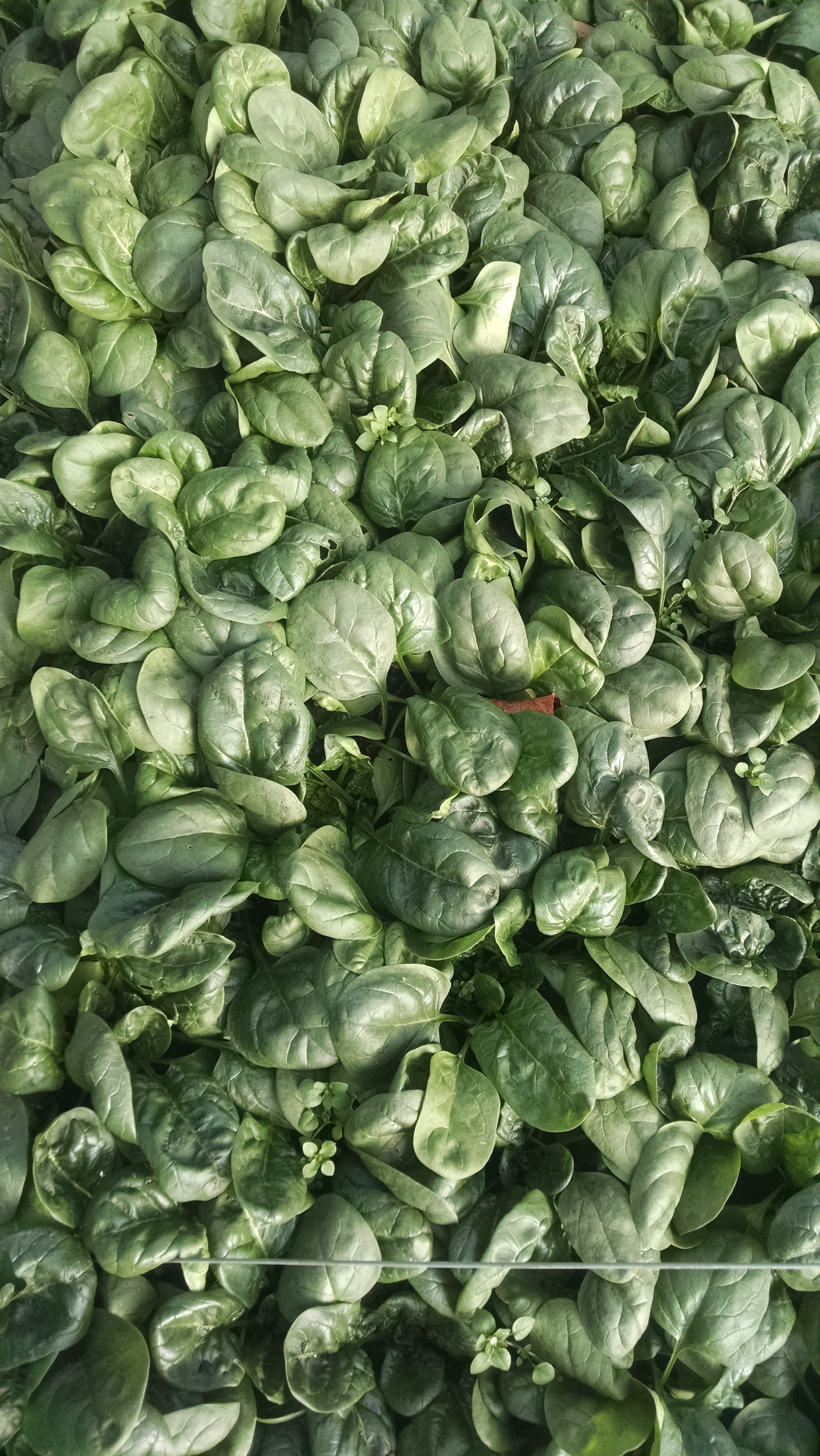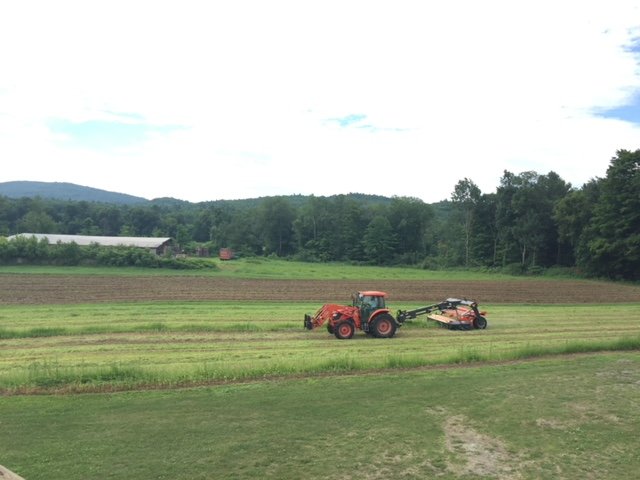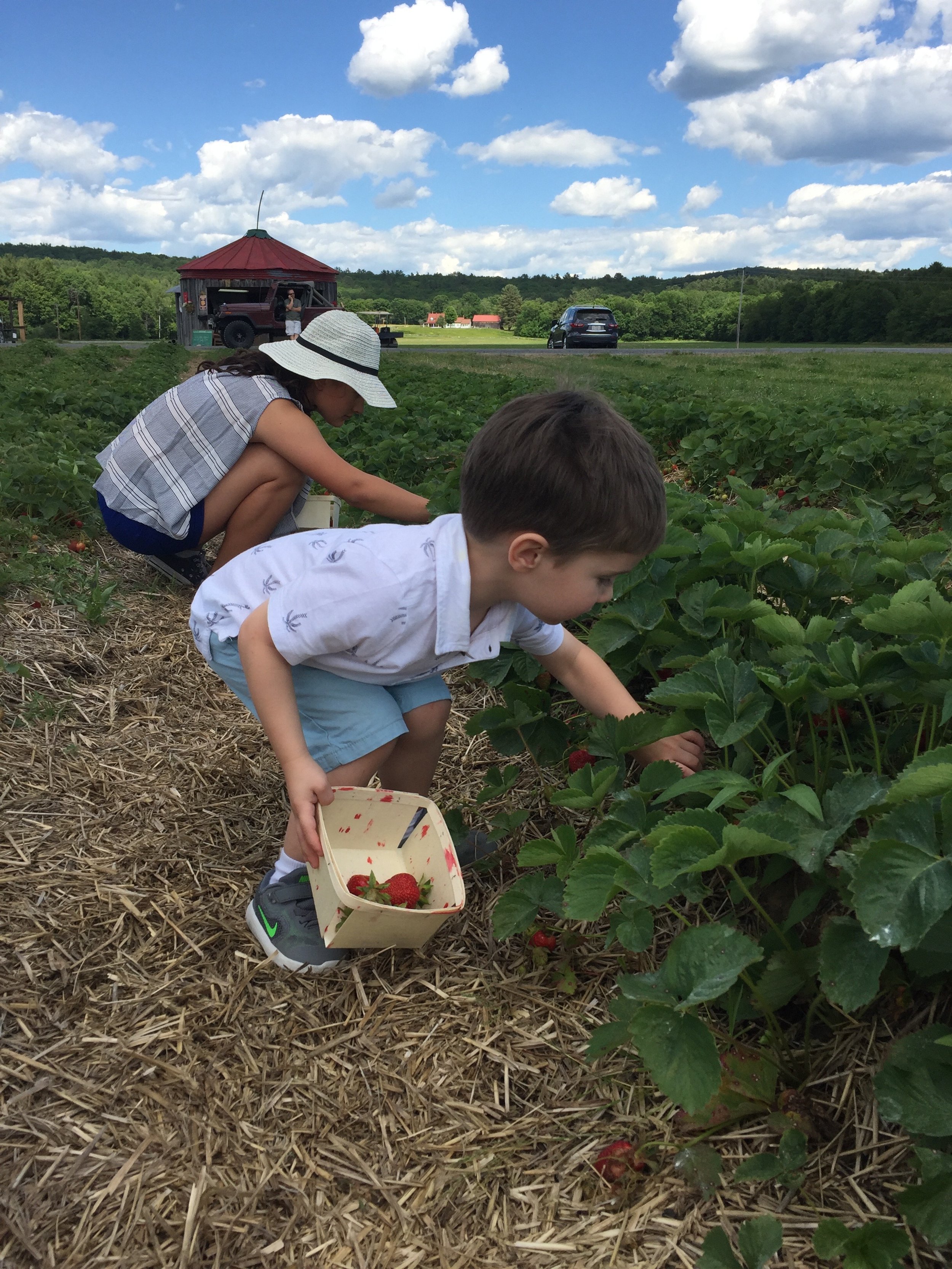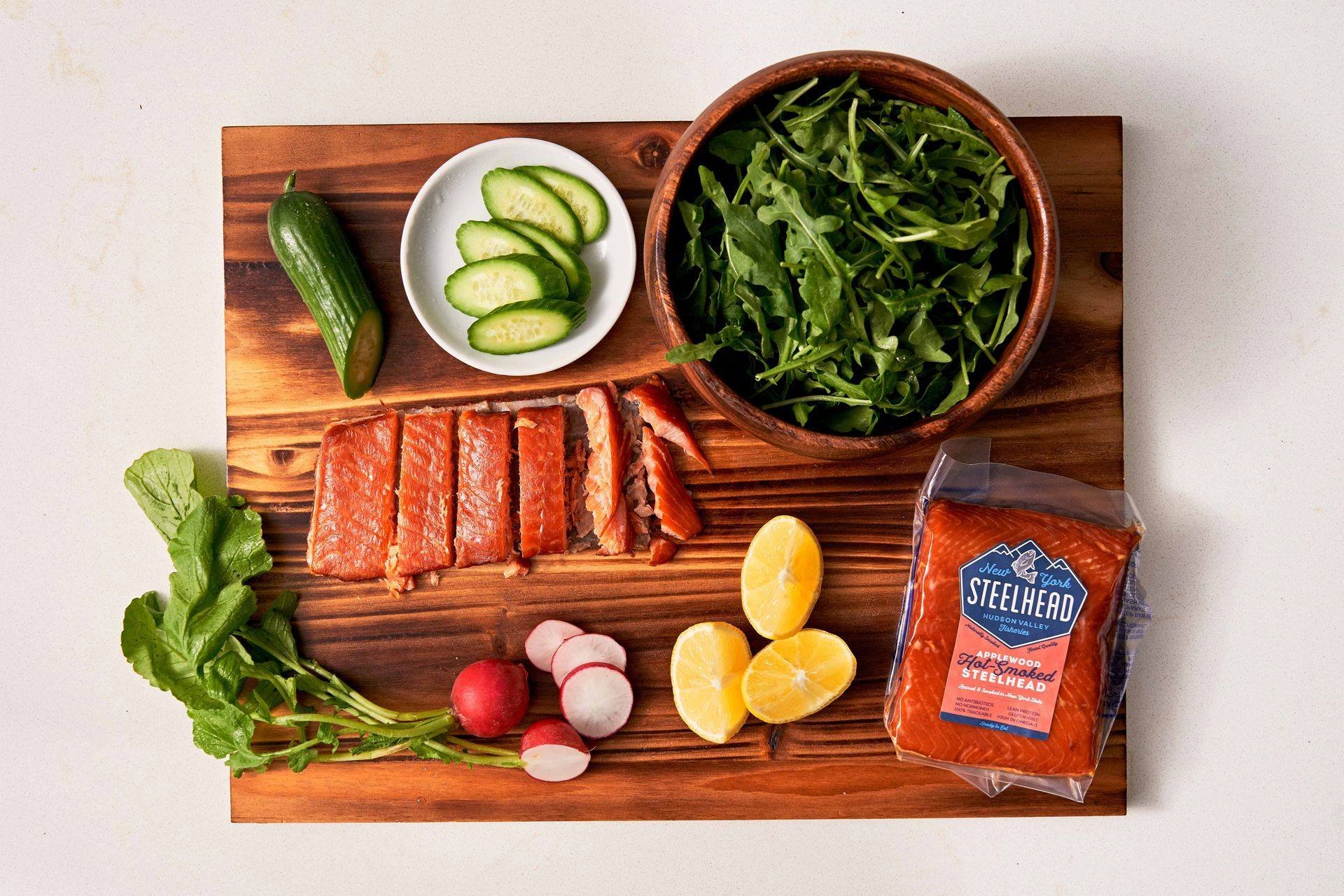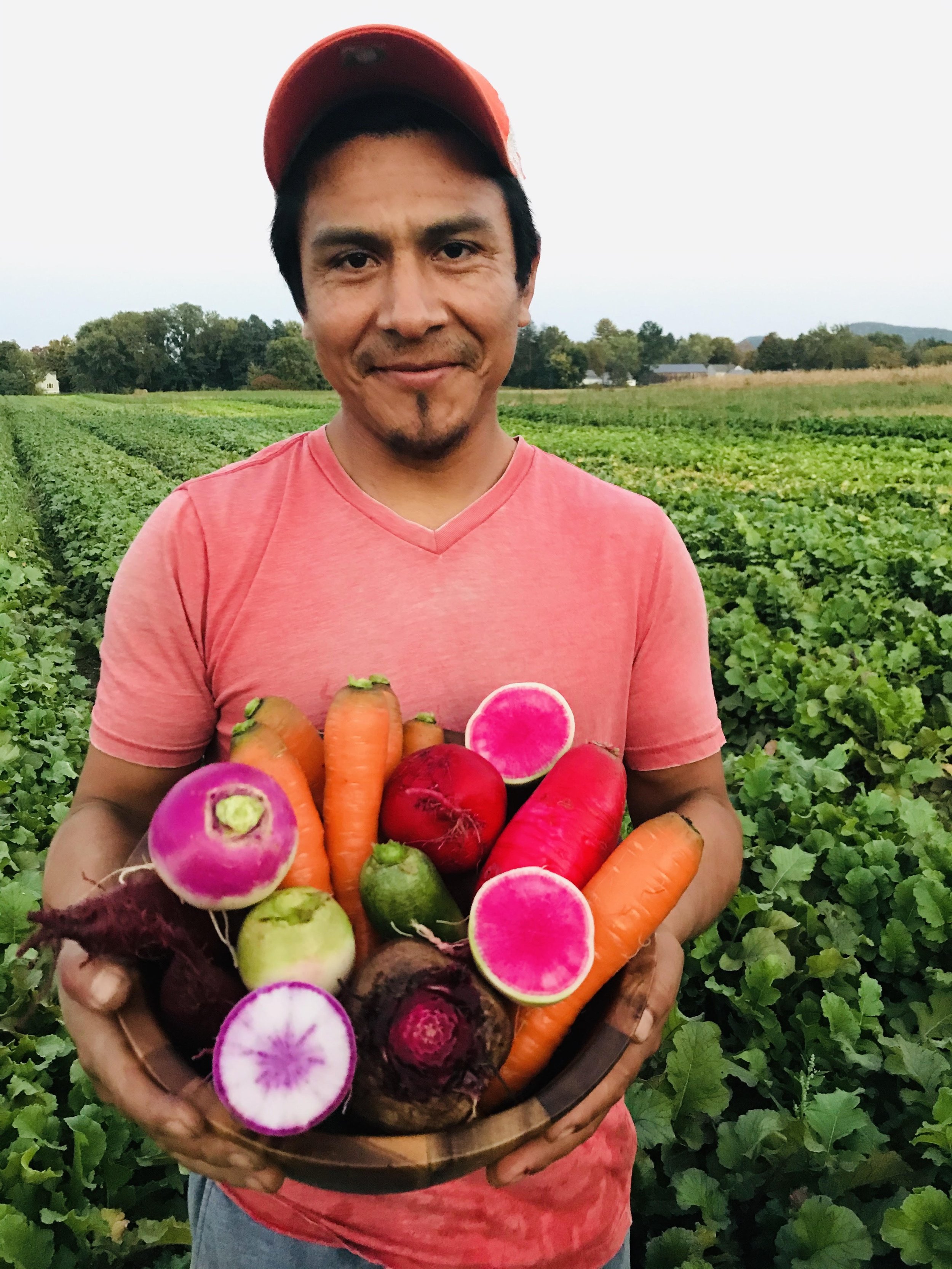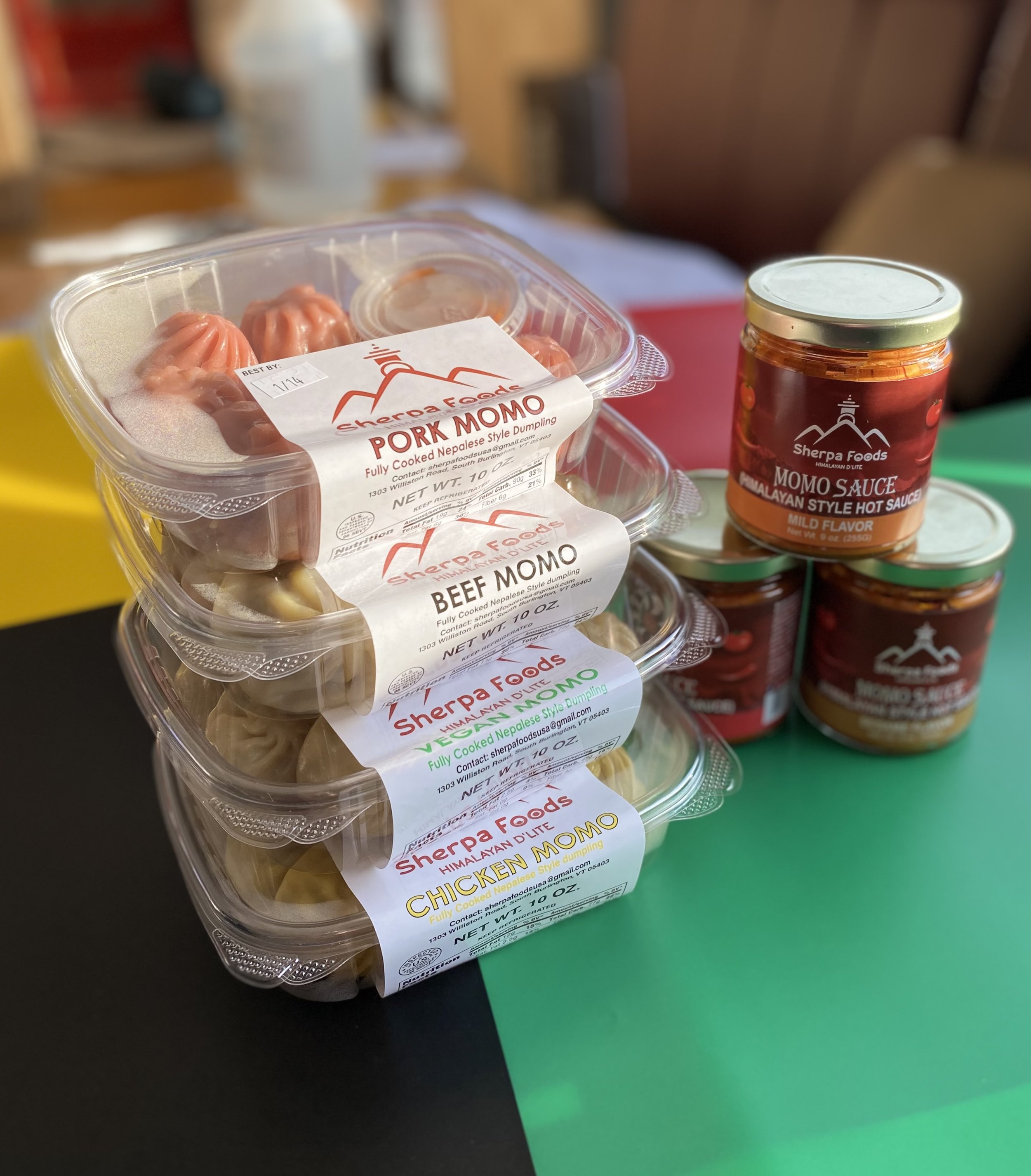1. Pat the filets dry with a paper towel in order to remove any unwanted moisture. Pro tip: drying the skin of the fish will ensure crispy skin when cooking.
2. Before cooking it is encouraged to leave the fish out at room temperature for about 10-15 min. This process is called tempering, in which we attempt to increase the internal temperature of the protein to allow for even cooking throughout.
3. Season fish with salt and pepper.
4. Heat a non-stick skillet to medium heat and add olive oil.
5. Place fish skin side down into the pan, away from you so the oil does not splatter.
6. Allow fish filet(s) to cook for about 3 minutes until the skin is crispy. It is important to not move the fish around while it is searing. The goal is crispy skin.
7. Once the skin is nicely browned and crispy, flip the filet over to finish cooking the flesh side, reduce heat to low and cook for another 2-3 minutes. Please note that a thicker filet of fish will take longer to cook. Please be mindful.
8. Once the fish is cooked remove it from the skillet. Add chicken stock or vegetable stock and allow to reduce to half the volume.
9. Lower heat and whisk in dijon mustard. Whisk sauce with butter to thicken, emulsify, and round out the flavors. Adjust seasoning with some fresh lemon juice, salt, and pepper. If desired, add chopped fresh herbs.
10. Plate the fish, spoon over the sauce, and enjoy!
Could you tell our readers a little bit about any sustainability initiatives Hudson Valley Fisheries has?
Our recirculating technology (RAS) continuously converts our fish’s waste into organic fertilizer then filters the water back into its system. This allows for 95% of the water to be recycled throughout our process. The nutrient-rich wastewater is diverted to our greenhouses to grow crops, and any additional waste is converted into natural fertilizer to be used on local farms. Unlike most traditional forms of aquaculture, there is no risk of fish escapes, chemical runoff, or any other detrimental effects to the ecosystem. Additionally, HVF minimizes its carbon footprint by only selling its products to the local communities within 200 miles of its facility.
Why is buying and selling locally and the local food movement is important to you?
Very often, locally grown foods are not only better for the environment but are also a healthier alternative to mass-produced and imported goods. Our fish serves as an example of that philosophy. The local food movement is vital in order to get healthy, nutritious, and sustainably sourced products into more people’s homes. Moreover, as HVF expands its footprint, it is committed to bolstering the local economy through jobs and partnerships with other local industries.
How does working with Food Connects help your business/what are you excited about in this partnership?
We are thrilled to be working with Food Connects because we feel aligned with its sourcing values and attention to education. Like Food Connects, we aim to provide the healthiest and tastiest fish while teaching our customers about its significance at the same time.
Additionally, we are excited to enter the Vermont and New England markets alongside Food Connects. With most of our efforts focused on New York, we believe there is a lot of opportunity to grow with Food Connects.



